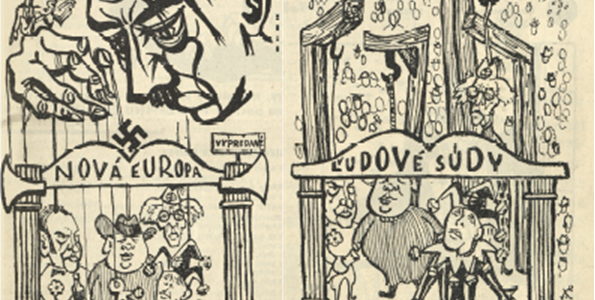
A lecture by Michala Lônčíková (Comenius University, Bratislava) in the frame of the seminar on Modern Jewish History of the Institute of Contemporary History (AV ČR) and CEFRES in partnership with the Masaryk Institute (AV ČR).
Where: CEFRES library, Na Florenci 3, 110 00 Prague 1
When: from 5 pm to 6:30 pm
Language: English
Similarly to other European countries that, immediately after the war, were facing the aftermath of German occupation and collaboration, a system of retributive justice was established in the restored Czechoslovakia as well. Even though anti-Jewish atrocities did not represent an exclusionary question in the lawsuits in the newly established People’s Courts, racially motivated crimes in general were covered in various paragraphs of the main retributive regulation, no. 33/1945 Sb. n. SNR. Analysing the trials of the main political representatives of the wartime Slovak State, which were held in the National Court, partly enables one to trace out the official anti-Jewish policy and its mechanisms at the state level. On the other hand, regional cases, which were in the jurisdiction of the District People’s Courts, also raise the question of the responsibility of local aggressors, co-perpetrators, and eye-witnesses amongst the Slovak majority. This microhistorical perspective is crucial for analysing the Jewish-Gentile relationships in their wider social context in the years of persecution and partly in its aftermath. Using the collections of the District People’s Court in Banská Bystrica, this presentation explores the struggle of Holocaust survivors in Slovakia for justice and the ways in which these crimes were judged in the early years after the Liberation.
Read more about the colloquia!
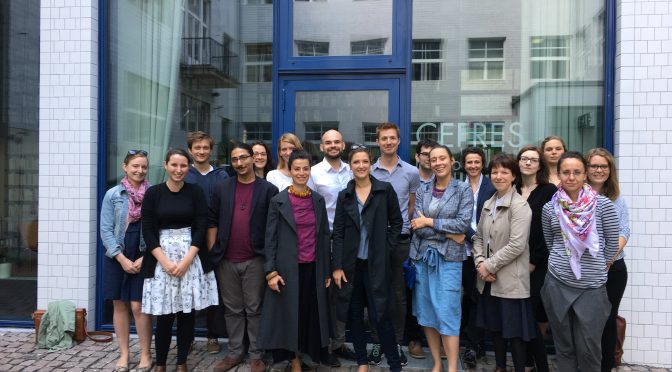
After a year spent at CEFRES, CEFRES 2016/17 PhD students will present to their fellow colleagues the outcomes of their research in a joint concluding seminar, and welcome the members of CEFRES team 2017/2018.
Place and time: Na Florenci 3, building C, conference room, 3rd floor, between 2 and 5:30 PM
Language: English
Program
2:00 Mátyás Erdélyi : Modernity, Capitalism, and Private-Clerks: The Philosophy of Money in Austria-Hungary
2:30 Filip Herza : Freak Shows and the Collective Body of Nation in Prague 1860s-1930s: The Concept of Disability and Nationalism Studies
3:00 Katalin Pataki : From Victims to Collaborators: the Dissolution Procedure of Mendicant Monasteries in the Hungarian Kingdom (1787-1793)
3:30 Coffee Break
4:00 Chiara Mengozzi (post-doctoral researcher): Literary Animals: Thinking Beyond Human, Reading Against Allegory
4:30 Magdalena Cabaj : From Hermaphrodite Writing to Intersex Writing
5:00 Lara Bonneau : Fall and Ascent: Reading Warburg with Binswanger
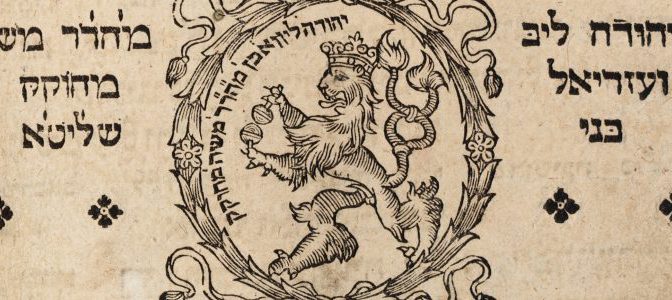
A lecture by Olga Sixtová (Charles University, Prague) in the frame of the seminar on Modern Jewish History of the Institute of Contemporary History (AV ČR) and CEFRES in partnership with the Masaryk Institute (AV ČR).
Where: Na Florenci 3, 110 00 Prague 1
When: from 5 pm to 6:30 pm
Language: English
What factors and who determined the literature to be published in early modern Jewish Prague? Like their readers, the publishers of Jewish literature (often not the same people as the printers) were “children of their time” and though they sometimes introduced new authors, new ideas, new genres or new knowledge, they always published what interested them and what they expected their readers to appreciate and buy. After all, though a “holy” business, publishing was first and foremost a business. But publishers and printers also had to accommodate the ideological positions of the chief rabbinate whose interventions in the publishing business become more visible upon closer study of the paratexts and sequence of the titles published over time.
The content of the vast majority of the books in this period is religious. The publishers expressly hoped to bestow the spiritual merit of the texts on the public and thus to accelerate Redemption. What remains individual is the choice of the text that was to contribute to this ultimate aim. Here, one can discern different inclinations among different publishers, diverse interests of various strata of Jewish society, and also changes in spiritual and intellectual trends throughout the period.
Read more about the colloquia!
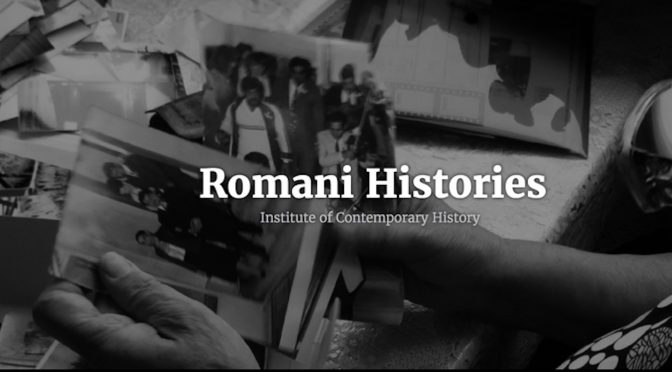
When: 20–21 September 2017
Where: Czech Academy of Sciences, Villa Lanna, Prague
Language: English
The conference is a joint event bringing together two recent academic initiatives focusing on the research on the history of the Roma and supporting new approaches in the field: the Prague Forum for Romani Histories and the Research network on ‘Legacies of the Roma Genocide in Europe since 1945’, which is funded by the Arts & Humanities Research Council (AHRC, United Kingdom). Both initiatives aim at fostering a debate on the history of Roma as part of European history and contemporary European society.
Find the program of the conference here!
See the flyer and the program here.
More on the Prague Forum for Romani Histories
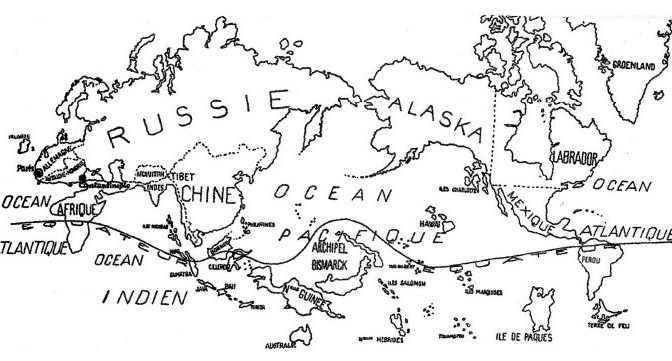
Fifth session of the common epistemological seminar of CEFRES and IMS FSV UK led by
Chiara Mengozzi (CEFRES – FF UK)
On the Use and Abuse of the concept of World Literature
Where: CEFRES library – Na Florenci 3, 110 00 Prague 1
When: Thursday 14.12.2017 from 3:30 pm to 5 pm
Language: English
Text :
- Franco Moretti: “Conjecture on World Literature”, New Left Review, Jan. 2000, p. 54-68.
Read more about the seminar!
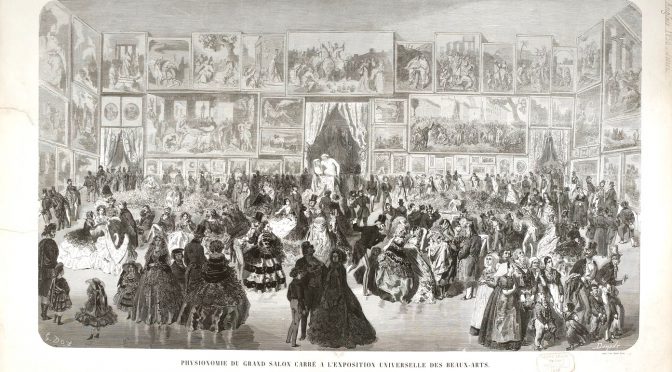
Fourth session of the common epistemological seminar of CEFRES and IMS FSV UK led by
Adéla Klinerová (CEFRES & FF UK-EPHE)
The Concept of Cultural Transfer
Where: CEFRES library – Na Florenci 3, 110 00 Prague 1 (to be confirmed)
When: Thursday 7.12.2017 from 3:30 pm to 5 pm
Language: English
Text:
- Štefanová Dana: Cultural Transfer, Regional History and Historical Comparison as Research Concepts. Comparing Research Between Western and Eastern Europe, in: Čapská Veronika et al.: Processes of Cultural Exchange in Central Europe, 1200-1800, Opava 2014.
Read more about the seminar!






